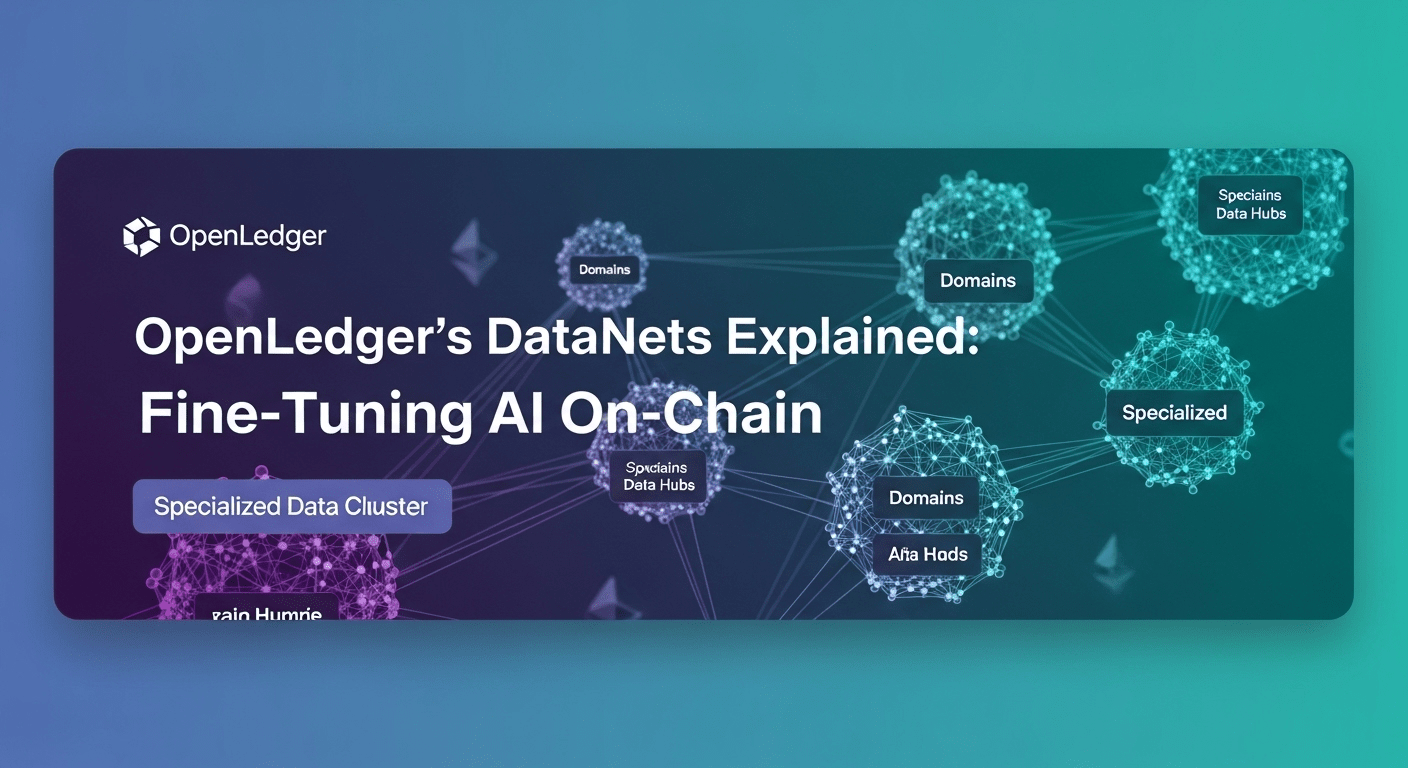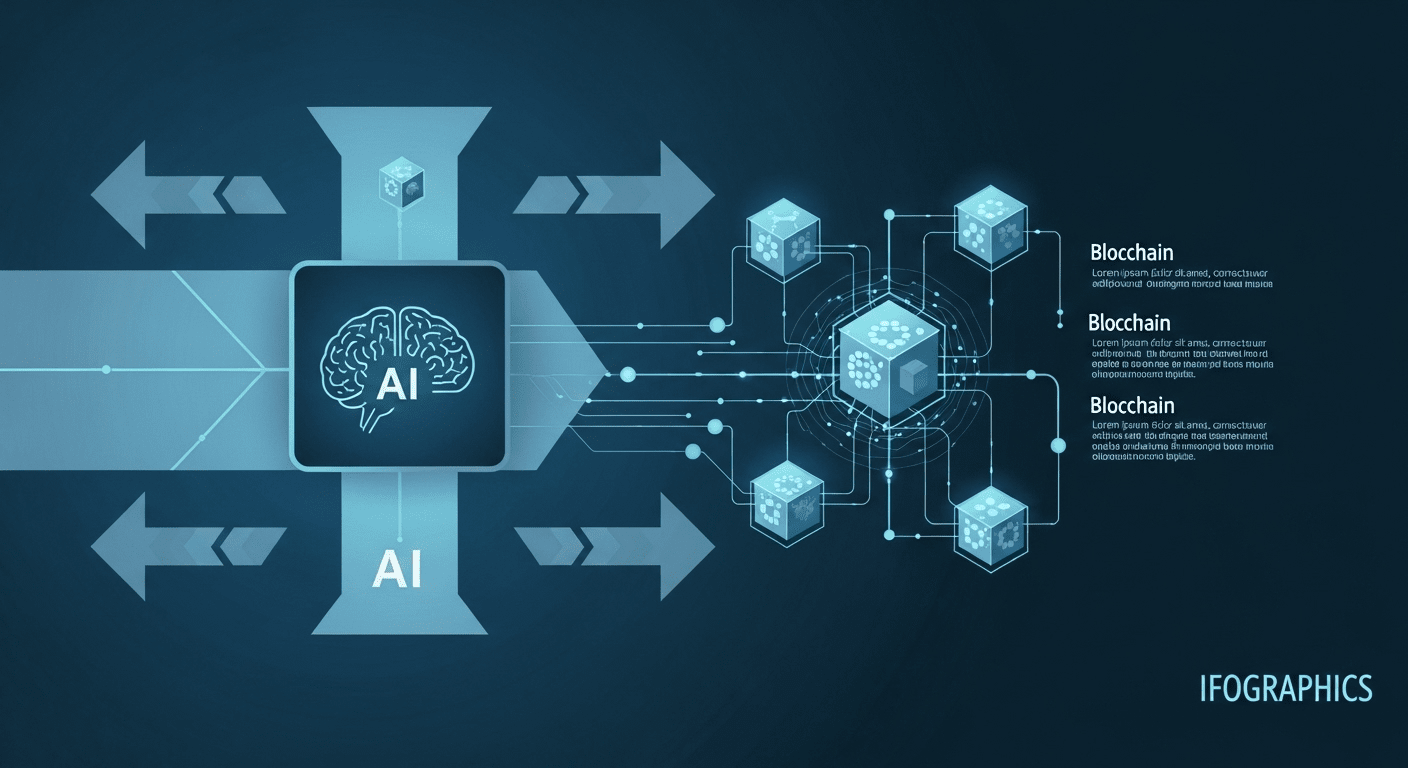 General AI models lack specialized expertise. Creating domain specific intelligence requires fine tuning with curated datasets. OpenLedger's Datanets architecture enables this process entirely on chain, creating specialized AI data networks that developers can access and contribute to transparently.
General AI models lack specialized expertise. Creating domain specific intelligence requires fine tuning with curated datasets. OpenLedger's Datanets architecture enables this process entirely on chain, creating specialized AI data networks that developers can access and contribute to transparently.
The Fine-Tuning Challenge
Training a general AI model costs millions, but creating specialized versions for specific industries or use cases requires fine tuning with domain specific data. Traditionally, this happens in centralized environments where data sourcing, quality, and contributor compensation remain opaque.
What Are Datanets?
Datanets are specialized data networks on OpenLedger focused on specific domains medical imaging, legal documents, financial analysis, or any field requiring targeted AI expertise. Each Datanet aggregates high quality, verified data from contributors who share a common domain focus.

Decentralized Data Aggregation
Rather than one entity controlling domain specific datasets, Datanets enable distributed contribution. Medical professionals worldwide can contribute anonymized patient data to a healthcare Datanet, creating richer datasets than any single institution could compile while maintaining contributor attribution.
Quality Curation Through Consensus
Not all contributed data has equal value for fine tuning. Datanets employ validator networks that assess data relevance and quality for the specific domain. High quality, domain appropriate contributions receive higher weights and rewards, while irrelevant or low quality data gets filtered out.
On-Chain Fine-Tuning Records
When AI developers use a Datanet to fine-tune their models, the entire process is recorded on chain. Which data was used, how much each contribution influenced the model, and what performance improvements resulted all become transparent, verifiable information.
PROPORTIONAL REWARD DISTURBUTION
Contributors to a datanet earn $OPEN tokens proportional to how their data impacts fine tuned models. If a medical imaging dataset proves particulary valueable for traning diagnostic Ai, contributors to that dataset share in economic value their data generates.
SPECIALLIZED VS GENERAL PURPOSE
While Ai models understand broad concepts, datanets enable precision. A legal Datanet fine tunes models to understand contract clause , case law precedents, and regulatory compliance, and economic Datanets for macro trends.
Privacy-Preserving Contributions
Sensitive domain data like medical records or financial information requires privacy protection. Datanets support privacy preserving techniques like differential privacy and federated learning, allowing contribution of valuable data without exposing individual details.
Domain Expert Governance
Each Datanet can have its own governance structure where domain experts vote on quality standards, acceptable data types, and validation criteria. This ensures field specific expertise guides curation rather than generic algorithms.
Accelerating Specialized AI Development
Building domain-specific AI currently requires extensive data partnerships, licensing negotiations, and quality verification processes taking months or years. Datanets compress this timeline dramatically by providing pre-curated, verified, domain specific datasets accessible through smart contracts.
From General Intelligence to Specialized Expertise
The future of AI isn't just larger general models—it's specialized intelligence fine tuned for specific domains with data from actual practitioners. Datanets provide the infrastructure to create this specialized expertise transparently and fairly.
True AI advancement requires not just better algorithms, but better data and better data requires transparent systems where expertise is recognized, quality is verifiable, and contributors share in the value they create.

